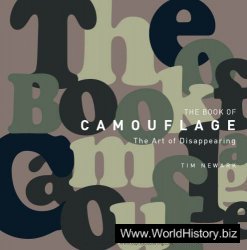The Cairo Conference, involving the United States, Great Britain, and China, was held in late November 1943 to discuss strategy and objectives for the Far Eastern arena of the Pacific theater of World War II.
American president Franklin D. Roosevelt and British prime minister Winston Churchill scheduled this conference to take place before they met with Soviet leader Joseph Stalin at the Teheran Conference, which would focus on Allied strategy in Europe. Originally Roosevelt had planned to meet only with Stalin at Teheran; however, Churchill insisted that he attend the Teheran Conference and also that he and Roosevelt meet beforehand at Cairo, Egypt, to coordinate their approach to the Teheran meeting and decisions about Europe. Roosevelt suggested that the Soviets and Chinese join the Cairo Conference and discuss Allied strategy in the Pacific. China agreed, but the Soviets demurred, preferring not to meet with the Chinese because of the Soviet nonaggression pact with Japan.
Roosevelt intended that the Cairo Conference focus especially on discussions with Chinese leader Jiang Jieshi (Chiang Kai-shek) about the war in Asia. Besides wanting to keep China in the war, Roosevelt thought China should be added to the “Big Three” (the United States, Soviet Union, and Britain) and as one of the major powers should have a significant voice in wartime and postwar policies. Roosevelt also attempted to get Churchill to pledge postwar independence to Britain’s Asian colonies, as the United States had for the Philippines. Churchill tried unsuccessfully to ignore Jiang, whom he considered unimportant, and to pressure Roosevelt into agreeing upon a united diplomatic front to present to the Soviets at Teheran.
Despite tensions between Roosevelt and Churchill, the Cairo Conference did come to some agreements about the Pacific war before the two men flew on to their meeting with Stalin at Teheran. The conferees decided that Japan would be stripped of territorial gains it had made since World War I and would return to China territory taken before and during the war, and they agreed that the Allies would require an unconditional surrender from Japan. These points, along with other decisions, were made public in December in the Cairo Declaration. Roosevelt also promised Jiang and his Nationalist Chinese forces continued assistance, including Lend-Lease Act aid and American support of an attack on Burma, although he came to the conclusion previously reached by others that Jiang was a weak and indecisive leader.
Roosevelt and Churchill met again less formally at Cairo in early December 1943, just after the Teheran Conference, in what is sometimes known as the Second Cairo Conference. Here they unsuccessfully tried to coax neutral Turkey into the war on the Allied side, and decided to delay the Burma offensive in order to shift needed resources into the cross-Channel invasion of France set at Teheran for the spring of 1944.
See also Anglo-American relations; Grand Alliance.
Further reading: Robert Dallek, Franklin D. Roosevelt and American Foreign Policy, 1932-1945 (New York: Oxford University Press, 1979); Keith Sainsbury, The Turning Point: Roosevelt, Stalin, Churchill, and Chiang Kai-Shek, 1943. The Moscow, Cairo, and Teheran Conferences (Oxford, U. K.: Oxford University Press, 1985).
—Nicholas Fry
Capra, Frank (1897-1991) motion picture director Frank Capra was perhaps the most famous motion picture director of the 1930s and 1940s. His celebration of democracy and the common man permeated his most important Hollywood movies of the 1930s as well as his Why We Fight films of World War II, produced in collaboration with the U. S. government. Capra’s focus on the dignity and decency of ordinary people reflected not only his own views but also themes often found elsewhere in the art,
PHOTOGRAPHY, LITERATURE, and POPULAR CULTURE of
The Great Depression.
Capra himself lived a version of the American dream after his family moved to the United States from Sicily when he was six years old. Working his way through college, Capra earned a degree in engineering before beginning his career in Hollywood. His 1934 comedy, It Happened One Night, won five Academy Awards, including both best picture and best director. Capra’s celebration of American democracy and the American dream shaped his subsequent films of the 1930s, especially Mr. Deeds Goes to Town (1936) and Mr Smith Goes to Washington (1939). Deeds, after inheriting a fortune and moving to the city, gives his money away and returns to his small-town home, disillusioned by greed and the power of money. Smith, a newly elected senator, sees the corruption of money and power in the U. S. Senate when he arrives in Washington and fights to expose it and return to the democratic ideal.
In 1941 Capra joined the U. S. Army Signal Corps and was asked by the War Department to create a series of films explaining the significance of the war and depicting the dangers of fascism and Nazism. Though much different in format from Capra’s fictional Hollywood movies and really part of the government’s wartime PROPAGANDA effort, the seven-film Why We Fight series also expressed his strong patriotism and his belief in the ideal of democratic government and the strength of ordinary people. The films were shown to soldiers going overseas to impress upon them the meaning of the war. The first film in the series was also released for general distribution and, while faring poorly at the box office, won a 1942 Academy Award.
After the war, Capra continued to make films designed to celebrate American values and inspire optimism in his audiences. His most famous work, It’s a Wonderful Life (1946) is now considered to be the peak of Capra’s career, though it was not a commercial success. By the 1950s and 1960s, audiences and their tastes changed, and Capra’s films became relics of an older generation.
Further reading: Frank Capra, The Name above the Title: An Autobiography (New York: Macmillan, 1971); Charles J. Maland, Frank Capra, rev. ed. (New York: Twayne, 1995).
—Ann Adams




 World History
World History









